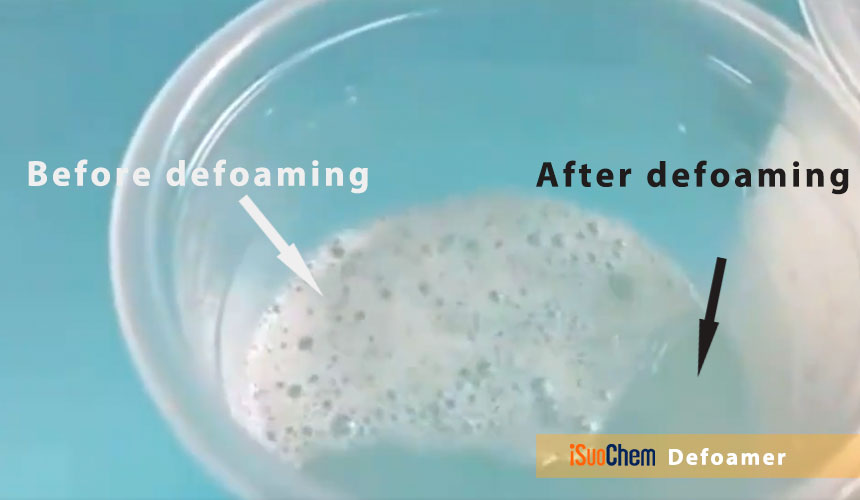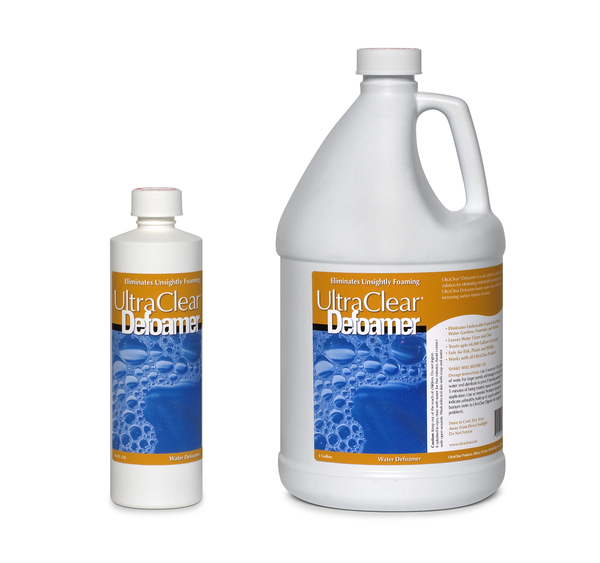How Defoamers Help Improve Performance in Coatings and Paints
How Defoamers Help Improve Performance in Coatings and Paints
Blog Article
Discover the Top Advantages of Making Use Of Defoamers in Industrial Processes
The utilization of defoamers in commercial processes provides an array of engaging benefits that can improve functional efficiency and product quality. By successfully managing foam production, these representatives not just optimize material circulation however likewise add to considerable expense reductions and boosted sustainability. Their application extends numerous sectors, which elevates inquiries concerning their function in mitigating ecological effect while making certain constant output. Recognizing these advantages is important for sectors intending to improve their procedures. The effects of adopting defoamers may be much more extensive than originally viewed. What certain benefits could your company harness?
Improved Process Efficiency
Maximizing industrial processes typically involves addressing frothing problems, which can impede functional efficiency. Foam development can hinder the proper functioning of equipment, reduce the efficient usage of resources, and complicate the surveillance of vital criteria. By executing defoamers, sectors can successfully minimize these concerns, resulting in structured operations and enhanced efficiency.
Defoamers job by destabilizing the foam structure, permitting fast collapse and substantial reduction in foam quantity. This activity not only improves the flow of materials via tools, such as reactors, mixers, and pipelines, yet also reduces disturbances triggered by foam overflow. Tools downtime is reduced, enabling for an extra continual and efficient manufacturing procedure.
Additionally, the usage of defoamers can lead to decreased energy intake. With less foam to handle, compressors and pumps can operate much more successfully, leading to reduced operational expenses and a total renovation in procedure throughput. Ultimately, the critical use defoamers not only addresses prompt lathering challenges however additionally adds to an extra efficient commercial environment, cultivating an affordable advantage in a demanding market.
Improved Product High Quality
The combination of defoamers in commercial procedures plays an essential role in improving product high quality. By efficiently regulating foam formation, defoamers add to the uniformity and harmony of end products. Excessive foam can cause aeration, which negatively influences the structure and stability of solutions, specifically in industries such as food and drinks, finishes, and drugs.

Moreover, defoamers promote much better mixing and dispersion of components, resulting in homogeneity in solutions. This is important in applications where precise active ingredient proportions are vital for efficiency and safety. In addition, the elimination of foam can decrease the risk of contamination during production, more securing product honesty.
Ultimately, by improving item high quality, defoamers not just improve consumer complete satisfaction yet also strengthen brand name credibility. Their role in keeping top quality requirements emphasizes their importance in contemporary industrial procedures.
Expense Decrease Benefits
Applying defoamers in industrial processes can cause considerable price decrease benefits. By efficiently managing foam formation, defoamers minimize item loss throughout manufacturing, therefore enhancing product usage. This decrease in waste converts straight right into lower raw material prices, improving total functional efficiency.
Moreover, the usage of defoamers can reduce power intake. Extreme foam can straight from the source hinder equipment performance, leading to raised energy demands to maintain manufacturing levels. By alleviating foam, defoamers promote smoother operations, allowing machinery to run much more efficiently and decreasing power expenses.

In addition, defoamers can reduce processing times. By using defoamers, sectors can simplify their processes, leading to faster turnaround times and improved throughput.

Environmental Impact Mitigation
In industrial procedures, making use of defoamers plays an important function in mitigating environmental influences connected with foam generation. Foam can cause substantial operational ineffectiveness, causing enhanced exhausts and waste generation. By efficiently regulating foam, defoamers aid preserve procedure performance, consequently minimizing the general ecological impact of operations.
Furthermore, excessive foam can overflow control systems, leading to spills that might pollute soil and water sources. Defoamers aid minimize this threat by making certain that lathering does not surpass suggested limitations, advertising compliance with environmental guidelines. This positive strategy not just safeguards communities but additionally enhances the sustainability of commercial methods.
In addition, the usage of defoamers can decrease energy consumption in various processes. defoamers. Minimizing foam formation decreases the demand for extra energy-intensive procedures, such as increased agitation or pumping, which may or else be required to take care of foam. As a result, the adoption of defoamers lines up with more comprehensive visit the website sustainability goals by promoting energy effectiveness while lessening the carbon footprint of commercial tasks.
Ultimately, integrating defoamers into commercial procedures is a critical action that supports ecological stewardship and liable resource administration.
Flexibility Throughout Industries
Across different industries, defoamers show impressive convenience, adjusting to the details requirements of diverse applications. In the food and drink market, for instance, defoamers are important to keeping item quality by stopping foam formation during handling, which can influence appearance and taste. In the pharmaceutical sector, defoamers guarantee the security of formulations, boosting item efficacy and uniformity.
In the chemical manufacturing realm, defoamers help with smoother operations by minimizing foam in reaction vessels, thus boosting return and minimizing downtime. The paper and pulp market counts on defoamers to boost the efficiency of pulp processing and paper manufacturing, ensuring ideal product integrity. In addition, in wastewater therapy centers, defoamers play a crucial function in controlling foam during oygenation procedures, leading to enhanced therapy end results.
The convenience of defoamers reaches the oil and gas sector, where they aid in managing foam in boring liquids and production procedures. By tailoring formulations to fulfill details industry requirements, defoamers work as crucial tools that improve functional performance, product high quality, and overall process effectiveness throughout a wide variety of fields. Their adaptability underscores their value in modern-day industrial applications.
Conclusion
In verdict, the application of defoamers in commercial processes provides various benefits, consisting of enhanced performance, improved item high quality, substantial expense decreases, and favorable ecological influences. The integration of defoamers stands for a calculated strategy to addressing obstacles linked with foam management in various making settings.
Eventually, the tactical usage of defoamers not only addresses prompt foaming obstacles but additionally adds to a much more reliable commercial environment, fostering an affordable advantage in a demanding market.
In industrial processes, the use of defoamers plays an essential function in mitigating ecological influences associated with foam generation. By properly regulating check this site out foam, defoamers aid maintain procedure performance, thus lowering the overall ecological footprint of operations.
In addition, in wastewater therapy centers, defoamers play a crucial role in regulating foam during oygenation processes, leading to better therapy end results.

Report this page